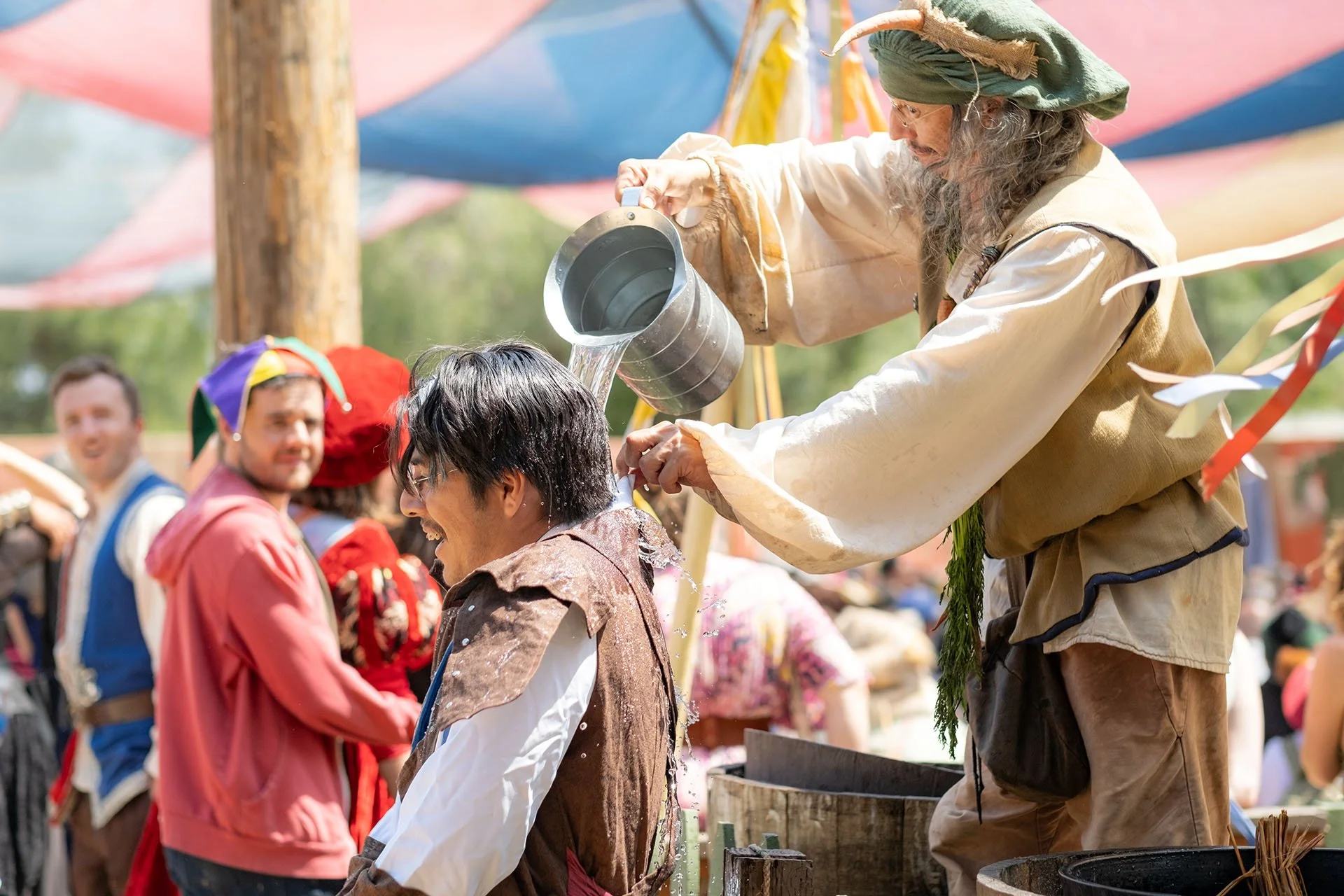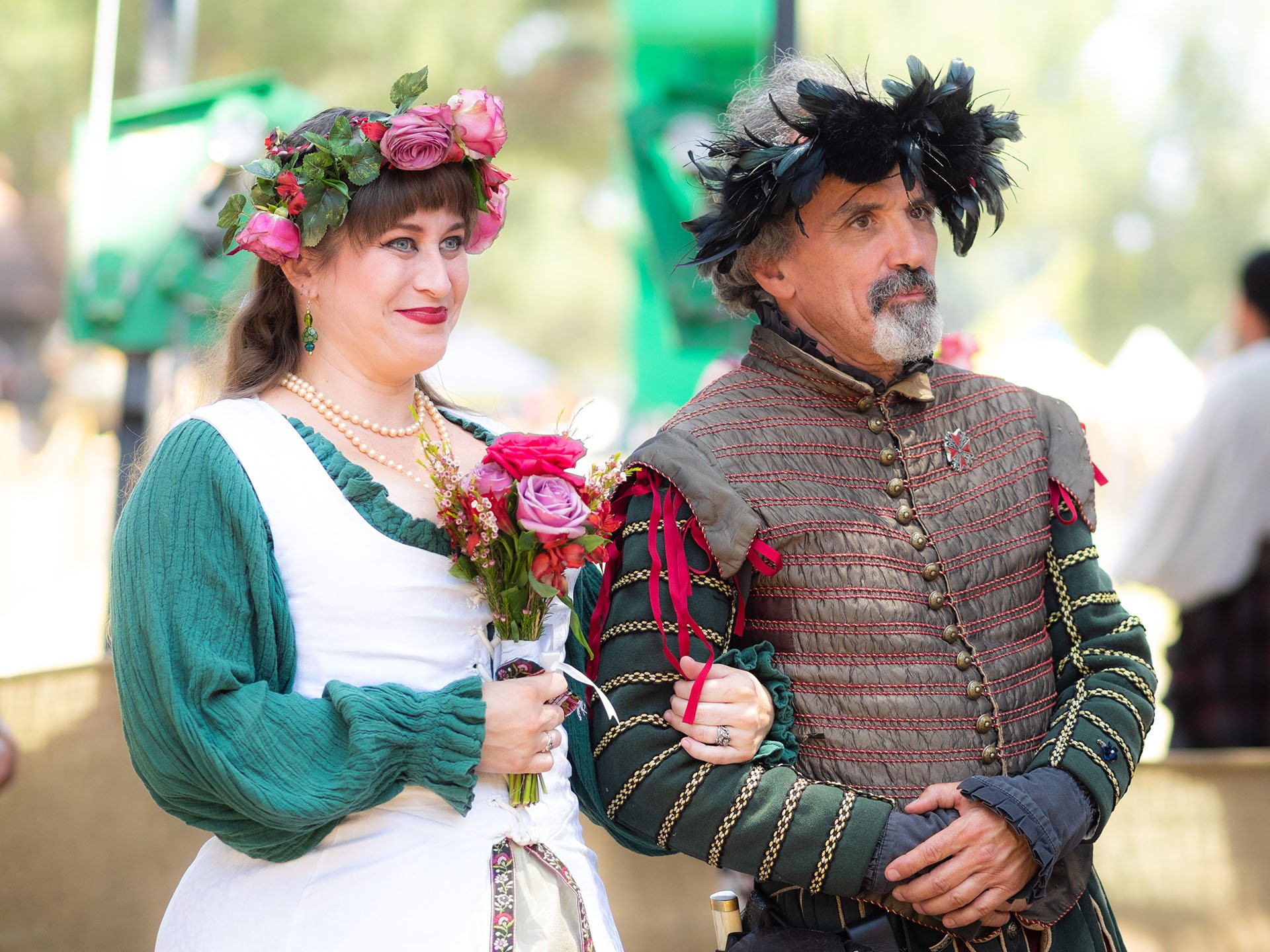SoCal Ren Faire
Well known as the origin of the film industry, Los Angeles has also served as breeding ground for inventive live theater, and wholly new forms of entertainment. Born out of a summer camp in L.A.’s suburban San Fernando Valley in the early 1960s, the “gathering in the woods” that would become the Southern California Renaissance Faire invented an art form, one that’s been copied the world over. Loosely representing a fictional port town in 16th Century England, the Faire is one part theater, one part historical reenactment, and all parts merriment.
Introduced to the Faire in 1999 by friends, my wife and I fell in love with its Shakespearean street theater, where indeed “all the world’s a stage”. But, as a patron, I always felt like the participants were having all the fun.
This drove us to volunteer with the Faire starting in 2011, where we were transformed into English Commoners with the Guild of St. Helena’s. It’s been the better part of two decades now, and while I’ve certainly had a lot of fun, I’ve been reflecting more and more on the lessons in self discovery, leadership, and community that Faire has taught me along the way.
Unsatisfied with examining my own Faire experience, I’ve begun asking my friends at Faire what it means to them. I first put this question to Kasey, leader of my guild, and 16-year-combined Faire veteran. She spoke of her early days as a hawker (someone who announces wares for sale in the streets), and how she was quickly recognized as being loud, and therefore perfect for the dunk tank.
Kasey describes Faire as being free of judgement, where “you’re hard pressed to find as many people who have your back, and who are here for you.” Furthermore, she sees it as a place where make believe becomes reality. “It’s a place to be your inner crazy person for seven weeks.” This idea that you can drop the mask you wear out in the ‘real world’ and just be your true, weird self is something that keeps me coming back as well.
What about the history the Faire represents? I asked Lance, who through his 8 years with the Faire has become enamored with the real events of 16th and 17th Century Europe, and shares his passion with others. “The Renaissance was a major upheaval of ideas.” He says, adding that what attracts him to the era is the fact that there was “lots of change during the period.” He’ll tell you stories of collaborations and clashes of culture that took place in the era.
Ultimately, he joined Southern Faire, where he describes the experience as less of a strictly historically accurate portrayal, and more of a place “where you come to be entertained.” But his experience goes beyond just having a good time. Speaking fondly of a childhood memory of being knighted at Northern Faire, a sister event that takes place near San Jose, Lance expresses feelings around Faire that border on the profound.
How strong is the Faire community? I talked to Alex, known by “Choko” at Faire, who remembers a time when he was a “true Faire virgin”, who didn’t even know what “huzzah” meant. “I grew up in gang environments, violence, drive-bys. I’ve seen death. At Faire I was welcomed with open arms, no judgement.”
Discovering the Faire, he found a new family. “Blood family is family first, but it’s the people that keep me here. You get to know and love them, and they keep me grounded.” What stands out the him most to him about Faire? “It’s a different lifestyle, one where you choose the life you want to live. You pick up right where you left off last year, same vibe.”
What about the perspective of someone new to Faire? On the final day of her first year as a participant, I asked Leora about her experience. While she knew it would be fun, and exhausting, she was surprised by how much practice she had to put into the act of ‘play’. “Faire is a good outlet for that.” She says, having had limited opportunities to participate in something as simple as play as adult. “I didn’t understand that importance.”
But, like Lance, Faire was more than just fun. Thinking back over the new friends she made and experience she had during her first season, she says: “I’ll carry it with me for the rest of my life.”






